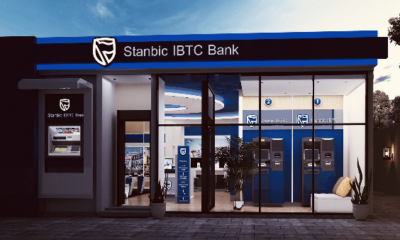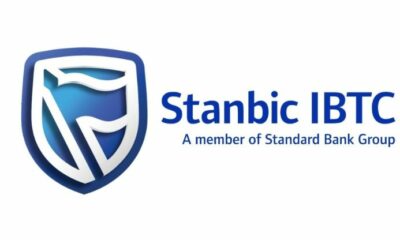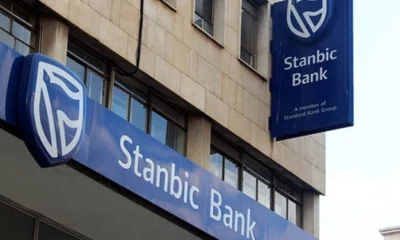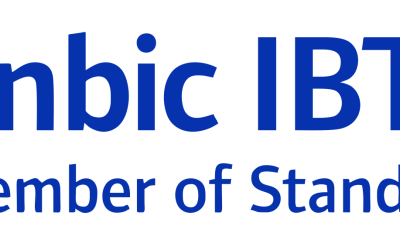Business & Economy
Stanbic IBTC Bank Nigeria PMI® Cash Shortages Lead To Sharp Decline In Business Activity

Stanbic IBTC Bank – February PMI data indicated that cash shortages across the Nigerian economy had a severe impact on the private sector midway through the first quarter of the year. Substantial declines were seen in both output and new orders, while firms scaled back their purchasing activity and employment.
Companies were also impacted by shortages of fuel, which added to price pressures and led to supplier delivery delays.
The headline figure derived from the survey is the Stanic IBTC Bank Purchasing Managers’ Index™ (PMI®). Readings above 50.0 signal an improvement in business conditions in the previous month, while readings below 50.0 show a deterioration.
The headline PMI dropped below the 50.0 no-change mark in February, posting 44.7 from 53.5 in January. Business conditions deteriorated markedly, ending a 31-month sequence of expansion. The decline in operating conditions was the sharpest since the survey began in January 2014, excluding the opening wave of the COVID-19 pandemic in the second quarter of 2020.
The most severe impacts of cash shortages were seen with regard to output and new orders, which both fell substantially as customers were often unable to secure the funds to commit to spending. The decline in new orders was the first since June 2020, while the fall in output ended a seven-month sequence of growth. In both cases, the reductions were the most pronounced in the survey’s history, apart from during the opening wave of the COVID-19 pandemic.
With new orders and output falling, companies reduced their input buying and staffing levels accordingly. The declines were the first in 32 and 25 months respectively. The decrease in purchasing reflected not only a drop in customer demand but also difficulties for companies to find the funds to pay for items.
RECOMMENDED: Stanbic IBTC Ready For Seamless Transactions As Cashless Policy Takes Effect
Alongside cash shortages, the private sector was also impacted by a scarcity of fuel in February. This had a notable impact on suppliers’ delivery times, which lengthened for the first time in close to six-and-a-half years and to the greatest extent since April 2016.
The slump in PMI shows that while the central bank has managed to reduce the amount of cash held outside the banking system to a record low, it has come at a cost to the economy.
“The lingering cash shortages will likely continue to dampen economic activities and could depress economic growth” this quarter, said the Head of Equity Research West Africa at Stanbic IBTC Bank, Muyiwa Oni, adding that the Nigerian economy could grow at 3 per cent in 2023 due to the challenges.
“Furthermore, persistent fuel shortages from the beginning of the year saw petrol pump prices increase, which both increased production costs for firms and led to supplier delivery delays. Sure, the lingering cash shortages will likely continue to dampen economic activities and could depress economic growth in Q1:23,” he stated.
In turn, shortages led to a rise in fuel costs which were widely mentioned as having been behind a further marked increase in purchase prices. Higher raw material costs and currency weakness were also factors pushing up purchase prices. The rate of inflation was the softest since June 2020, but marked nonetheless and stronger than the series average. Staff costs also rose again in February, but at a modest pace.
The passing on of higher input costs to customers resulted in a further sharp rise in output prices, albeit one that was the weakest in four months.
Hopes that economic conditions will improve, alongside business expansion and investment plans, led to confidence in the year-ahead outlook for business activity. The sentiment was at a five-month high but still relatively muted.















